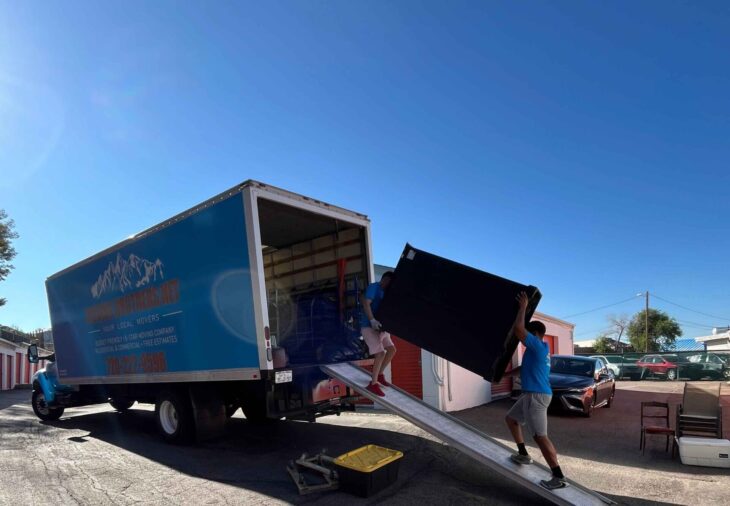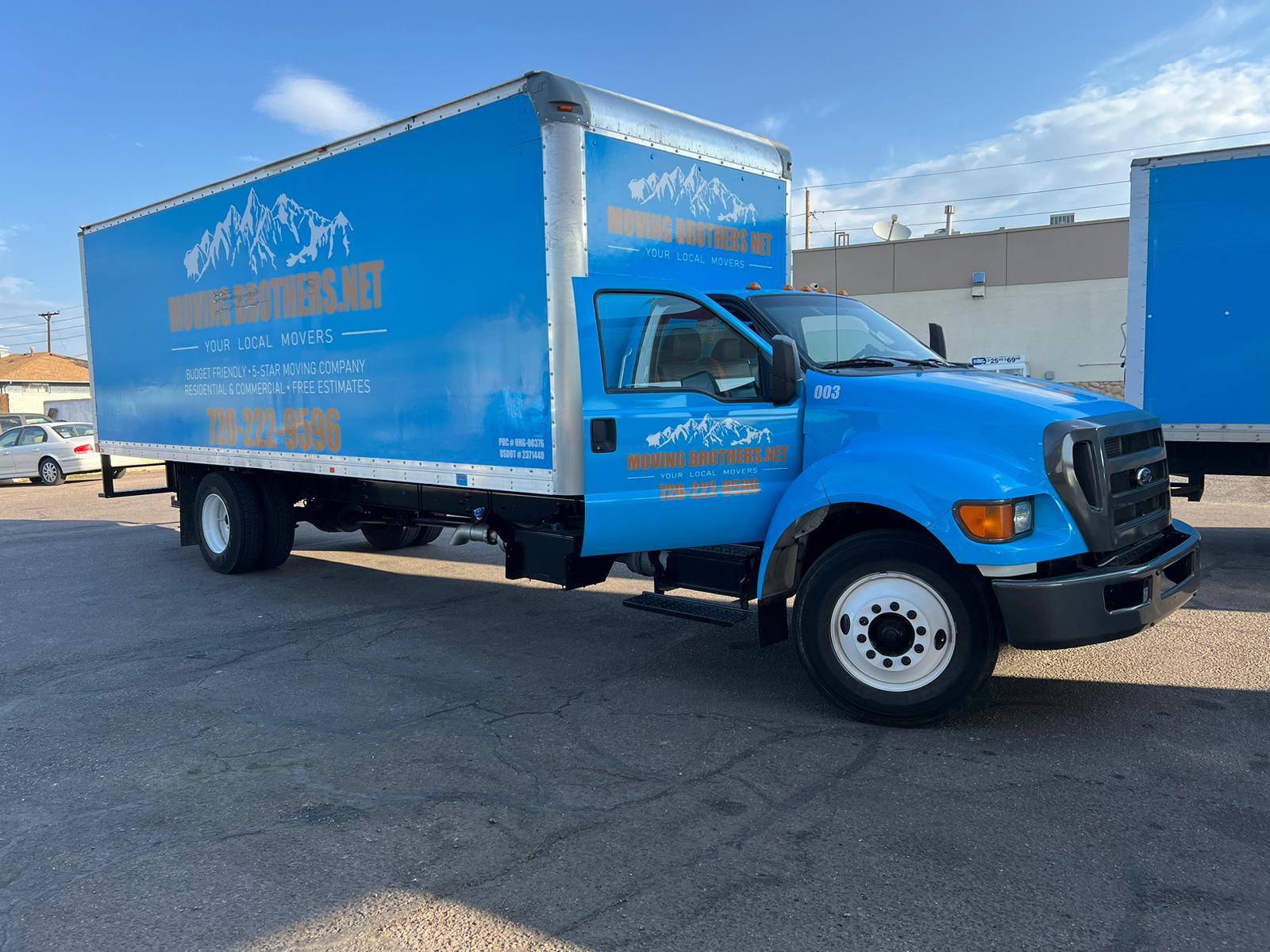
Moving Tips for Your Commercial Office Move in Denver
Relocating a commercial office is a major undertaking. Between moving employees, handling sensitive equipment, and ensuring your business does not grind to a halt, there is a lot that can go wrong without proper planning. The good news? With the right strategy and a reliable moving partner, your Denver office move can be efficient, organized, and far less stressful than you think.
At Moving Brothers, we have helped Denver businesses of all sizes relocate with confidence. Whether you are shifting to a bigger office downtown, moving to a tech hub in the Denver Tech Center, or relocating to a suburban business park, the same rules apply: plan ahead, communicate clearly, and let professionals handle the heavy lifting.
Here is everything you need to know for a successful office move in Denver.
Why Denver Businesses Move Offices
Before diving into the logistics, it helps to understand why so many companies relocate to Denver. Common reasons include:
- Growth and expansion: Startups outgrowing co-working spaces or small offices often move into larger commercial buildings.
- Location advantages: Companies may want to be closer to clients, downtown amenities, or Denver’s major highways like I-25 and I-70.
- Cost savings: Some businesses move from premium downtown space to more affordable suburban areas such as Aurora or Lakewood.
- Upgraded facilities: Moving to a modern building with better IT infrastructure, parking, or sustainability features can improve productivity.
Understanding your reason for moving will shape the planning process and help set clear priorities.
Key Considerations Before Your Office Move
Every commercial move is unique, but these are the main challenges to address early on:
- Logistics: Large office moves involve furniture, IT equipment, records, and employee workstations. All of these need careful coordination.
- Downtime: Every hour your systems are offline could mean lost revenue. Minimizing downtime should be a top priority.
- Employee Productivity: Employees will need time to settle into the new location and adapt to changes.
- Costs: Moving expenses can add up quickly. Always request a detailed written estimate and ask about hidden fees.
- Timeline: A rushed move almost always results in errors. Build in buffer time wherever possible.
By anticipating these challenges, you will have fewer surprises when moving day arrives.

Start Planning Early
One of the biggest mistakes businesses make is underestimating how long a move will take. For a small office, you will want to start planning at least three months in advance. For larger corporations, six months to a year is more realistic.
Early planning gives you time to:
- Compare quotes from multiple Denver commercial movers.
- Evaluate the new office space for layout and IT readiness.
- Schedule movers during less disruptive times, such as evenings or weekends.
- Prepare employees for the transition.
Create a Detailed Office Moving Checklist
A checklist keeps everyone accountable and ensures nothing falls through the cracks. Break it down into phases:
Pre-Move
- Secure lease agreements and building access for the new office.
- Notify vendors, clients, and service providers of your new address.
- Schedule internet, phone, and utility installations.
During the Move
- Assign department heads to oversee their areas.
- Ensure IT staff or vendors handle servers, cabling, and security systems.
- Track items with a labeling and inventory system.
Post-Move
- Confirm utilities and internet are live.
- Test equipment and phone systems.
- Hold a walkthrough with movers to ensure nothing was left behind.
Hire Professional Denver Commercial Movers
Commercial moves require experience. Unlike residential moves, you are dealing with:
- Expensive electronics such as servers, copiers, and conference room setups.
- Large, heavy furniture that needs disassembly and reassembly.
- Sensitive files and documents that require careful handling.
At Moving Brothers, we provide insurance coverage, packing expertise, and efficient transportation to ensure your equipment and furniture arrive safely. Attempting to handle the move with employees not only risks damage but also delays your reopening.
Communication is Key
With Employees
Keep your staff in the loop throughout the process. Share timelines, expectations, and responsibilities early on. Consider sending weekly updates or hosting short meetings so no one is caught off guard.
With Movers
Your moving company also needs consistent updates. If your closing date shifts, if the new office changes access rules, or if you need after-hours moving, notify them right away. Denver office buildings often have strict moving windows, especially downtown, so your movers need accurate information to plan properly.
Label, Organize, and Inventory Everything
Efficiency on moving day starts with organization. Create a labeling system that makes unpacking seamless. For example:
- Use color coding by department (marketing = blue, finance = green, IT = red).
- Place clear labels on all sides of boxes.
- Keep a digital inventory list to track what was packed, where it belongs, and who is responsible.
This minimizes lost items and confusion when setting up the new office.
Purge Before You Move
Do not pay to move what you do not need. Before packing, audit your office:
- Paperwork: Shred old files that are past retention requirements.
- Furniture: Donate outdated desks or chairs to local nonprofits.
- Electronics: Recycle old equipment through Denver’s e-waste programs.
Not only does this save money, but many donations can be written off as tax deductions.
Plan Around Denver’s Weather
Denver is notorious for unpredictable weather. Snowstorms can hit as late as May, and sudden thunderstorms are common in summer. Bad weather can delay loading and unloading or even damage equipment if it is not properly protected.
Tips for handling weather:
- Aim for spring or early fall when conditions are milder.
- If moving in winter, make sure movers are equipped with floor protection and safe snow navigation.
- Build extra time into the schedule for weather delays.
Take Advantage of Denver’s Business Resources
Moving is not just about the physical relocation. It is also about settling into a new community. Denver offers resources that can help, including:
- Denver Metro Chamber of Commerce: Great for networking and promoting your new location.
- Denver Economic Development & Opportunity: Offers support for growing businesses.
- Local co-working hubs: If you need temporary space during the transition, Denver has flexible office solutions across the city.
Ready to Relocate Your Denver Office?
An office move does not have to mean lost productivity and chaos. With early planning, open communication, and the right moving team, you can relocate with minimal stress and downtime.
At Moving Brothers, we have spent more than a decade helping Denver businesses relocate offices of every size. From downtown high-rises to suburban business parks, we understand the unique challenges of moving in Denver, and we are here to make the process seamless.
Contact us today for a free commercial moving estimate and let us help your business settle into its new space successfully.
